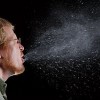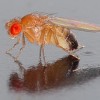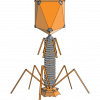Archive for October, 2011

The Medical Sleuth
Oct 31st
When we think of a detective the first thing that comes to mind is an investigator, either a member of a police agency or a private entity. However there are unique detectives within the multifaceted arena of medicine. All though we might already think of most doctors as detectives there are special doctors, units, working at the National Institute of Health’s (NIH) undiagnosed disease program. Doctors such as William A. Gahl at the NIH are disease detectives that try to elucidate the causes and genetic basis involved in the hundreds of unsolved and mysterious diseases that arise each year. Dr. Gahl More >

Autumn Leaves
Oct 28th
Autumn is my favorite season. I enjoy the cool weather, unpacking my sweaters from the attic and sleeping under my cozy comforter. But better than all of the above are the fantastic red, yellow and orange leaves that adorn the deciduous trees here in New York. Before I worked at the DNA Learning Center, this process was simply a beautiful rite of fall. Now, I see the whole process in a different light. It’s an elegant series of genetic steps that evolved millions of years ago, for a reason much bigger than beauty!
For most of the year, deciduous trees are More >

Origin of ALS discovered
Oct 24th
ALS (amyotrophic lateral schlerosis, a.k.a. Lou Gehrig’s disease) is a devastating disease which kills motor neurons, leaving patients paralyzed and unable to function. Although patients remain aware and for the most part mentally undamaged, most patients die within 2-3 of onset as the disease progressively leaves them trapped in a body that is unable to function. As motor neurons die, the person’s muscles weaken and atrophy, and patients will eventually develop respiratory difficulties leading to death.
Unfortunately very little is known about how this disease develops, so a new breakthrough published in Neuron (and by a second group also in Neuron) is More >

The Upside of Allergies
Oct 19th
Are you one of those unfortunate souls who suffers from allergies? Do you shudder at the thought of spring time, with all its budding flowers, new growth and pollen flying through the air? Can’t visit Aunty Annie’s house because of the cat dander? Have to ask the ingredients of every cookie for traces of nuts, eggs, or wheat?
Well you may actually be one of the lucky ones! Your immune system’s sensitivity may be protecting you from contracting brain cancer.
Researchers at the University of Illinois at Chicago asked over 1,000 hospital patients about their allergy histories. Astonishingly, patients who had high-grade More >
AIDS Cure UPDATE
Oct 15th
Back in February, I blogged about a patient who received a bone marrow transplant, from an HIV-immune donor, that cured both his leukemia and AIDS. I mentioned that while bone marrow transplants were impractical as a primary treatment for AIDS, I suggested that perhaps gene therapy tactics could be employed to achieve the same effect. For the first time, scientists at Sangamo BioSciences have shown that this may actually be possible.
HIV infects white blood cells by latching onto two protein receptors, CD4 and CCR5. Scientists noticed that people with a defect in the CCR5 gene (a 32-bp deletion) are incapable of More >

Model Organisms
Oct 12th
I asked a group of 5th graders the other day whether or not we can learn anything from studying other living things. For example, if we mutate or change the DNA of another organism, like fruit flies (D. melanogaster), can we learn anything about what can happen when human DNA changes? For this particular class, it seemed to be an absolutely absurd question. This could have been because the thought of fruit flies made them ill right before lunch, or they were unsure about how much we have in common with fruit flies.
So we got into a discussion about model More >

Viruses
Oct 11th
What do you think of when someone says virus? Most people would say infection, getting sick, germs, and other negative associations. Not only are viruses a valuable tool in research, they offer a look into history and also our own bodies. I’ve recently become a bit obsessed with learning more about them. Part of it is that I thought I knew more than I did. There is a huge amout of information just waiting to be uncovered. Too often we think we know something and it prevents us from learnng more. Even something simple like having the chicken pox…
I remember More >

Coffee Consumption and Depression
Oct 9th
I love coffee. My family loves coffee. At any time of the day I have access to 5 ways to quickly make a cup. Is this unusual? According to many statistic counts- not really. Americans love their coffee. Over 80% of Americans consume coffee- that’s over 400 million cups a day! Caffeine is our favorite stimulant. Interesting enough, men and women consume coffee for different reasons. Men drink coffee in order to get the job done and complete tasks. Women, on the other hand, use coffee to relax. For me, nothing’s better than a nice cup of coffee. Today there’s More >

Glow Kitties for Disease Resistance
Oct 5th
Who would have known that a little glowing jellyfish would come to mean so much? In the 60’s and 70’s a Japanese scientist named Osamu Shimomura isolated a protein from the pacific jellyfish (Aequorea Victoria) that allowed the jellyfish to glow. This cylinder-shaped protein is now called Green Fluorescent Protein or “GFP.” Shimomura also uncovered the part of the GFP molecule that was responsible for its fluorescence. After this initial discovery, other researchers began to show an interest in the little glowing molecule, especially, Martin Chalfie and Roger Tsien.
Martin Chalfie began attaching GFP to gene promoters, hoping that GFP would More >

